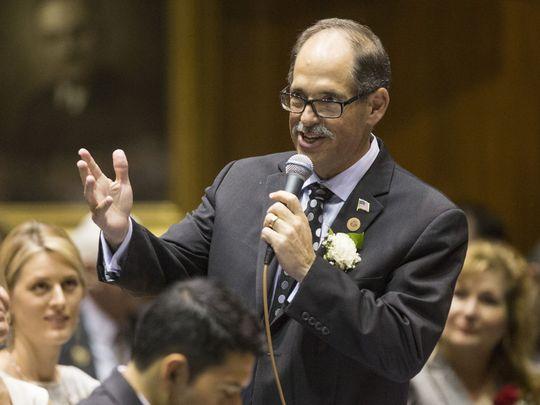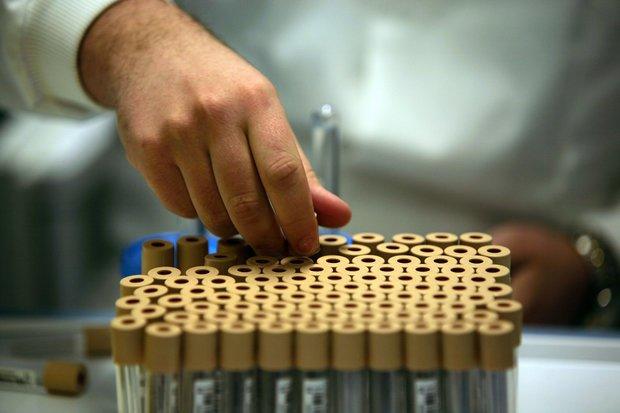New legislation working its way through the Arizona Senate would establish one of the country’s first statewide DNA databases in which wide swaths of residents would be forced to give up their genetic material.
State Senate Bill 1475, sponsored by Rep. David Livingston (R), would essentially collect DNA from anyone currently required to submit fingerprints, including teachers, safety inspectors, real-estate agents, anyone in law enforcement, and appraisers. Anyone who dies will also have their DNA collected and stored under the bill.
Meanwhile, a $250 fee would be collected from people submitting biological samples under the bill.

The DNA database would be maintained by the Department of Public Safety, which would include a person’s name, social security number, date of birth and last known address – and could be accessed and used by law enforcement for investigations. The database can also be shared with other government agencies across the country for the purposes for “employment, licensing, death registration, missing persons identification,” and IDing people using aliases or multiple identities, reports AZ Central.
No other state has anything this expansive in place, according to David Kaye, an associate dean for research at Penn State University who studies genetics and its application in law.
Kaye said the proposed bill is one step away from requiring DNA from anyone who wants a driver’s license. –AZ Central
DNA is currently collected from anyone convicted in Arizona of a felony or a misdemeanor sex crime.
“It doesn’t seem like solving crimes is a big priority here,” says David Kaye. “It’s not focusing on the people most likely to be linked to crimes, it’s just spreading the net more broadly.”
Widespread opposition
The bill has been widely opposed by Arizona residents, including the West Maricopa Association of Realtors, who voiced their opposition last week, suggesting that Livingston “would do well to read Thomas Paine’s “Rights of Man”. His premise is as true today as it was 250 years ago: Man is given natural rights as part of his existence. He does not join a society or form a government in order to lose those rights.”
Arizona wants some DNA, but the FBI wants all of it
While Arizona’s bill collects DNA from certain categories of individuals – and eventually everyone once they’re dead, the FBI is creating a “nation of suspects” according to a US think tank, as they seek to collect every single American’s DNA for a massive database signed into law in 2017 by President Trump which comes into effect this year.
The Rapid DNA Act allows police to routinely collect DNA samples from anyone they’ve arrested, but before they’ve been convicted of a crime. The 2017 law requires several states to connect Rapid DNA machines to the “Codis,” the FBI’s national DNA database.
Approximately the size of a desktop printer, use of the Rapid DNA machines made by Thermo Fisher Scientific and others, are “expected to become as routine a process as taking fingerprints,” according to the Daily Star.
But John W. Whitehead from The Rutherford Institute believes it is a sinister development which will make everyone a suspect.
Speaking to Daily Star Online, he said: “The fact of the matter is that these machines are not full-proof.
“But we could look at a situation in which someone could be arrested, have their mouth swabbed and then be charged within hours after generating a DNA profile.
“We are looking at the erosion of the concept of innocent before proven guilty because it will allow police to go on fishing expeditions. –Daily Star
“When you sit on a park bench, you shed DNA,” says Whitehead. “That is now up for grabs by police who could swab it, and run it through a DNA database. If they find a match, or if misconduct occurred anywhere in the vicinity where your DNA was found, you might find yourself charged with a crime you never committed merely because you happened to be in the wrong place at the wrong time.”
“Even people who aren’t charged with major crimes could have their DNA put on file,” adds Whitehead. “People who are just seen as suspicious could have their genetic makeup stored in a criminal database.“
via ZeroHedge News https://ift.tt/2T7mylX Tyler Durden
